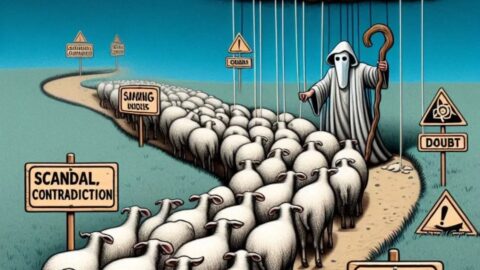The idea of “counting the votes after the elections” as a tool of tyranny refers to the manipulation or control of the vote-counting process to produce a desired outcome, regardless of how people actually voted. This practice undermines the fundamental principles of democracy and can lead to authoritarian rule. Here’s how this tool is used by tyrants:
1. Undermining the Constitutional Republic:
- Electoral Manipulation: By controlling the vote count, tyrants can alter the results of an election to ensure that they or their allies, olicharchs, and deep state beauracratics (loyalists) remain in power, regardless of the actual will of the people. This can involve outright fraud, such as changing vote totals, discarding ballots, or inflating numbers in favor of certain candidates.
- False Legitimacy: Manipulating the vote count allows a tyrant to claim the mantle of legitimacy, presenting the illusion of democratic support even when it doesn’t exist. This false legitimacy can be used to justify the continuation or expansion of their rule.
2. Consolidation of Power:
- Suppressing Opposition: By rigging the vote count, tyrants can ensure that opposition candidates and parties are marginalized or eliminated, preventing any potential challenge to their authority. This creates a one-party or one-leader system, where political competition is effectively destroyed.
- Control Over Institutions: When vote counting is manipulated, it often involves the complicity of electoral commissions, the judiciary, and other institutions. This not only consolidates power but also corrupts these institutions, making them tools of the tyrant rather than independent bodies.
3. Erosion of Trust:
- Public Disillusionment: When people believe that their votes do not matter because the outcome is predetermined, it leads to widespread disillusionment with the political system. This can result in apathy, low voter turnout, or even civil unrest, further destabilizing the country.
- Loss of International Credibility: A manipulated vote count can also damage a country’s reputation on the national and global stage, leading to sanctions, loss of diplomatic relations, and economic consequences as other nations refuse to recognize the legitimacy of the regime.
- Modern-Day Autocracies & Oligarchs: In various contemporary autocratic and olicarch regimes, controlling the vote count is a common tactic to maintain power, often leading to contested elections and claims of fraud.
The practice of manipulating the vote count after elections is a powerful tool for tyrants seeking to maintain control over a population. By ensuring that election outcomes are predetermined in their favor, they can suppress opposition, undermine democracy, and consolidate their power. This tactic not only erodes public trust in the political process but also poses significant threats to the principles of free and fair elections, which are the cornerstone of democratic republic governance.
“Those who vote decide nothing. Those who count the vote decide everything.” — Joseph Stalin
The idiom, the fox guarding the hen house comes to mind after reading Joseph Stalin’s quote.
The phrase “fox guarding the hen house” is often used to describe a situation where someone who should not be trusted with a particular responsibility is placed in charge of it, leading to potential conflicts of interest and misuse of power. When this idea is extended to “tyrants consolidating power,” it suggests a scenario where those in positions of authority misuse their power to further entrench their control, often at the expense of fairness, accountability, and the well-being of others. Here’s an exploration of this concept:
Fox Guarding the Hen House
Definition:
- Conflict of Interest: This metaphor indicates a scenario where an individual or group has the ability to exploit their position for personal gain or to the detriment of those they are supposed to protect or serve.
Examples:
- Regulatory Agencies: When former industry executives are appointed to oversee the industries they once worked for, leading to potential bias in regulatory decisions.
- Corporate Governance: When board members or executives engage in self-dealing or prioritize personal interests over those of shareholders and employees.
Tyrants Consolidating Power
Definition:
- Centralization of Authority: This refers to leaders or ruling groups who systematically accumulate and concentrate power, often undermining democratic institutions, checks and balances, and individual freedoms.
Characteristics:
- Authoritarian Rule: Implementation of policies that restrict freedoms, suppress dissent, and limit opposition.
- Control over Institutions: Taking control of key institutions such as the judiciary, media, and security forces to eliminate checks on power.
- Manipulation of Laws: Changing laws and constitutions to extend terms of office, eliminate term limits, or grant extraordinary powers to the executive branch.
Effects on Society
- Erosion of Trust:
- Public Distrust: When those in power are perceived as self-serving or corrupt, it undermines public trust in institutions and governance.
- Civic Disengagement: People may become disengaged from civic activities and political processes, feeling that their participation cannot effect change.
- Suppression of Rights:
- Civil Liberties: Tyrannical consolidation of power often leads to the suppression of civil liberties, including freedom of speech, assembly, and the press.
- Human Rights Violations: Increased likelihood of human rights abuses, as dissent and opposition are crushed.
- Economic Inequality:
- Cronyism and Corruption: Power consolidation can lead to cronyism, where resources and opportunities are distributed based on loyalty rather than merit.
- Widening Inequality: Wealth and power become concentrated among the ruling elite, exacerbating economic inequality and social divisions.
Preventing Power Consolidation
- Strong Institutions:
- Checks and Balances: Ensuring that governmental power is balanced among branches (executive, legislative, and judicial) to prevent any one branch from becoming too powerful.
- Independent Judiciary: Maintaining an independent judiciary that can act as a check on the executive and legislative branches.
- Transparency and Accountability:
- Open Governance: Promoting transparency in government actions and decisions to allow for public scrutiny and accountability.
- Anti-Corruption Measures: Implementing strong anti-corruption laws and institutions to detect and prevent misuse of power.
- Civic Engagement:
- Active Participation: Encouraging active civic participation and political engagement to ensure that government remains responsive to the needs and rights of the people.
- Free Press: Protecting the freedom of the press to provide independent and critical coverage of government actions.
The metaphor of “the fox guarding the hen house” in the context of “tyrants consolidating power” highlights the dangers of placing unchecked power in the hands of individuals or groups who may exploit their positions. Preventing such scenarios requires men and women of strong character, strong institutions, transparency, accountability, and active civic engagement to ensure that power remains balanced and serves the public good. Promoting these principles can help safeguard against the erosion of Constitutional values and the rise of authoritarian and tyrannical rule.
Subscribe to Our Email List
Get Iron County News alerts and updates in your inbox!







